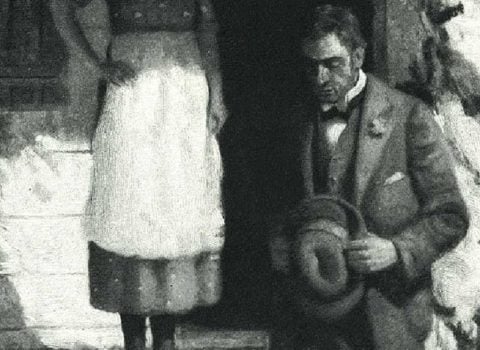After he had eaten the supper allotted by the dietary, Oliver Twist asked for more gruel. Yes, you read that right. It’s an issue that has been making waves among young aid recipients. But rather than let myself be misled by emotion, I went straight to the source.
I spoke to Mr. Bumble, acting director of the social enterprise Mudfog, which offers room and board to street-involved youth in exchange for obligatory participation in a job training program. He seems baffled by the entire drama that has unfolded recently. “The sustainability of our program rests on meeting precise benchmarks for operating costs. The Twist plan is a nonstarter.”
Raising gruel portions has a populist appeal which seems to have electrified lower-income children. Yet conceding ground to this trend would be a mistake. Figures from Plutos, an industry think tank, show that in caloric intake, hours worked and economic output, Mudfog children consistently outperform street urchins.
“The truth is that these children would be criminals without our support,” notes Mr. Bumble. It’s easy to see why. Such children have low academic potential and face a hostile job market. Rather than encouraging a reliance on social assistance, light factory work can give children a head start in developing employable skills while reducing the burden on the taxpayer.
The details of Twist’s plan for supplementary gruel have never been made entirely clear. Presumably the youth would need to increase their work speed to produce more income—yet there are already grumblings about the pace of work. Appeals to the wealth beyond its walls would simply renew the cycle of dependency that Mudfog was designed to break—the children would find themselves with new and dangerously high expectations, which could snowball into social chaos.
Mrs. Comey, assistant director at Mudfog, insists that the one-bowl rule allows the agency to maximize food quality. “If you start talking about two bowls, you’re talking about substandard food. We’ve seen what happens when you start debasing the gruel—you get bugs. It’s unpleasant, but it’s the truth.”
“The one-bowl rule is a best practice shared across similar social enterprises,” notes Mr. Bumble. “Asking for more is really out of touch with basic economics. But we know we have a responsibility to listen to these complaints and take them seriously. Ignorance breeds discontent.”
Although Mudfog has begun new programming on economic literacy to get their message across, there’s something greater at stake—two visions of the future. Let’s call it the Teslas against the Twists.
The Teslas are what I call people like Mr. Bumble. They are problem solvers who find extraordinary connections between underutilized resources and social needs. The arch-Tesla is the builder of the famous electric car himself, Elon Musk. Teslas are unconventional, innovative, and focused on the big picture. People like Mr. Bumble create value by transforming the unused labor of unemployed children into new and recovered textiles. Teslas see what others miss—the opportunities that shape the future.
The Twists, on the other hand, are burdened with a small view of the world. They don’t care about the artificial-intelligence revolution, or the rise of fintech, or even the home-automation boom. The Twists are stuck worrying about what to eat next, how to survive work, or the other narrow demands that they can’t seem to rise above. The Twists lack a vision of competing on the world stage, and focus on complaining about the Teslas. Every time a child gets mangled in a machine, they are quick to blame the machine.
The Teslas will defeat the Twists, but it’s not going to be pretty. Twists cling to their outdated notions of worker safety and sufficient caloric intake in a world that is passing them by. We need to give young people a wake-up call. Children must be made to see that there is no such thing as a “free lunch.” Hubs of social innovation like Mudfog bridge that gap between poverty and opportunity.
In the meantime, let’s not concede to the logic of the Twists by giving them a second bowl of gruel.




